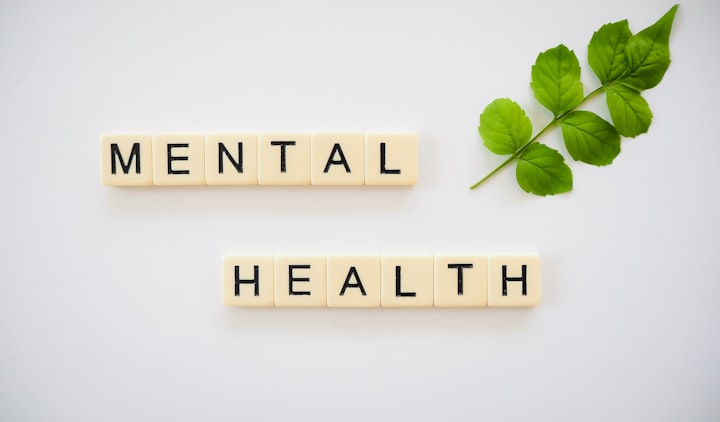Proven Strategies for Boosting Mental Health Naturally
Discover proven strategies for boosting mental health naturally. Learn how exercise, balanced diet, social connections, self-care, and professional help can help improve your well-being.

In today's fast-paced world, it's more important than ever to prioritize our mental health. Mental health encompasses our emotional, psychological, and social well-being, and affects how we think, feel, and act. Taking care of our mental health is essential for our overall well-being and can improve our quality of life. In this article, we will explore some proven strategies for boosting mental health naturally.
Understanding Mental Health
Before delving into strategies for improving mental health, it's important to have a clear understanding of what mental health entails. Mental health refers to a person's emotional, psychological, and social well-being. It affects how people think, feel, and act, and influences how they handle stress, relate to others, and make choices.
Common mental health issues include anxiety disorders, mood disorders, and behavioral disorders. Anxiety disorders, such as generalized anxiety disorder and panic disorder, involve excessive worry and fear. Mood disorders, such as depression and bipolar disorder, affect a person's emotional state. Behavioral disorders, such as attention deficit hyperactivity disorder (ADHD), involve patterns of disruptive behavior.
Healthy Lifestyle Habits for Mental Health
Maintaining a healthy lifestyle can have a significant impact on our mental well-being. Here are some essential habits that can boost our mental health naturally:

1. Regular exercise
Exercise not only benefits our physical health but also has a positive impact on our mental well-being. Engaging in regular physical activity releases endorphins, which are natural mood enhancers. It can also reduce symptoms of anxiety and depression, and improve sleep quality.
2. Balanced diet
A nutritious diet plays a crucial role in supporting our mental health. Consuming a variety of fruits, vegetables, whole grains, and lean proteins provides the necessary nutrients for optimal brain function. Avoiding excessive sugar, caffeine, and processed foods can also help stabilize mood.
3. Sufficient sleep
Adequate sleep is vital for mental health. Lack of sleep can contribute to an increased risk of developing mental health disorders, as well as impaired cognitive function and emotional regulation. Aim for seven to nine hours of quality sleep each night.
4. Stress management techniques
Developing effective stress management techniques can prevent the negative impact of chronic stress on our mental health. These techniques can include deep breathing exercises, meditation, yoga, and engaging in hobbies that bring joy.
Social Connections and Support
Maintaining strong social connections and seeking support when needed are crucial for promoting good mental health. Here are some strategies to foster social connections and seek support:

1. Maintaining strong relationships
Cultivating and nurturing meaningful relationships with family and friends helps combat feelings of loneliness and isolation. Regularly reaching out to loved ones, engaging in activities together, and being present in their lives can strengthen these connections.
2. Joining support groups
Joining support groups can provide a safe space for individuals facing similar challenges to come together and share their experiences. Sharing and listening to others can help individuals feel understood and supported.
3. Seeking professional help when needed
There is no shame in seeking professional help when struggling with mental health issues. Mental health professionals, such as therapists and counselors, are trained to provide guidance, support, and evidence-based treatments. Seeking help early increases the chances of successful recovery.
Self-Care and Relaxation Techniques
Practicing self-care and relaxation techniques is essential for maintaining good mental health. Here are some strategies to incorporate into your self-care routine:

1. Engaging in activities you enjoy
Make time for activities that bring you joy and relaxation. Engaging in hobbies, reading, listening to music, or taking a walk in nature can provide a much-needed break from daily stressors.
2. Practicing mindfulness and meditation
Mindfulness and meditation techniques help cultivate present-moment awareness and promote a sense of calm and tranquility. These practices can reduce anxiety, improve emotional regulation, and enhance overall well-being.
3. Taking time for yourself
Carve out regular moments of solitude to recharge and replenish your mental energy. Spending time alone, whether it's taking a bath, going for a solo hike, or simply enjoying a quiet cup of tea, can help you reconnect with yourself.
Harnessing the Power of Nature
Spending time in nature has a profound impact on our mental well-being. Here's how nature can boost our mental health:
1. Spending time outdoors
Exposing ourselves to natural settings, such as parks, gardens, or forests, has a calming effect on our minds. Taking a walk in nature or simply sitting in a peaceful outdoor environment can reduce stress, enhance mood, and improve cognitive function.
2. Connecting with nature
Engaging in activities that foster a connection with nature, such as gardening or birdwatching, can cultivate feelings of awe, gratitude, and interconnectedness. This connection can provide a sense of purpose and meaning in life.
3. The benefits of ecotherapy
Ecotherapy, also known as nature therapy, is a therapeutic approach that utilizes nature to promote mental and emotional well-being. Activities such as horticultural therapy, nature walks, and wilderness therapy have been shown to effectively reduce symptoms of anxiety, depression, and stress.
Limiting Exposure to Negative Influences
In our digital age, it's important to be mindful of the negative influences that can impact our mental health. Here are some strategies to limit exposure to negativity:
1. Managing social media usage
While social media can have its benefits, excessive use can lead to feelings of inadequacy, anxiety, and depression. Set boundaries for your social media usage and engage mindfully.
2. Avoiding toxic relationships
Toxic relationships can drain our mental and emotional energy. Surround yourself with supportive and positive individuals who uplift and encourage you. Distance yourself from toxic people who consistently bring negativity into your life.
3. Setting boundaries
Establishing and maintaining boundaries is essential for protecting your mental well-being. Learn to say no when necessary, prioritize self-care, and create a healthy work-life balance.
Developing a Positive Mindset
Cultivating a positive mindset is crucial for mental well-being. Here's how you can develop a positive mindset:
1. Cultivating gratitude
Practicing gratitude regularly can shift your focus from negativity to appreciation. Take time each day to reflect on things you are grateful for, whether big or small.
2. Challenging negative thoughts
Become aware of negative thought patterns and challenge them with positive and realistic counter-thoughts. Reframe negative experiences and focus on opportunities for growth and learning.
3. Practicing self-compassion
Treat yourself with kindness and compassion. Acknowledge your strengths and accomplishments, and be gentle with yourself during challenging times.
Healthy Work-Life Balance
Maintaining a healthy work-life balance is essential for mental well-being. Here's how you can achieve it:
1. Setting realistic goals
Set achievable goals that align with your values and priorities. Break big tasks into smaller, manageable steps to avoid feeling overwhelmed.
2. Time management skills
Effective time management helps prevent burnout and promotes a balanced lifestyle. Prioritize tasks, delegate when possible, and schedule regular breaks to recharge.
3. Taking breaks and unplugging
Allow yourself regular breaks throughout the day to rest and recharge. Disconnecting from work during your non-working hours is crucial for mental relaxation and rejuvenation.
Seeking Professional Help When Needed
Recognizing when to seek professional help is crucial for managing mental health issues. Here are some signs that indicate the need for professional support:
1. Recognizing when to seek help
If your mental health symptoms are interfering with your daily functioning, relationships, or overall well-being, it's important to seek professional help. Persistent feelings of sadness, hopelessness, or anxiety may require intervention.
2. Different therapy options
Therapy options can vary depending on individual needs. Cognitive-behavioral therapy (CBT), dialectical behavior therapy (DBT), and psychodynamic therapy are some examples of evidence-based therapies for mental health disorders.
3. Supportive resources
There are numerous supportive resources available for individuals struggling with mental health issues. Online forums, helplines, and support groups provide a space to share experiences, gain insight, and find solace.
Conclusion
Prioritizing our mental health is essential for overall well-being and a fulfilling life. By incorporating proven strategies into our daily routines, such as maintaining healthy lifestyle habits, fostering social connections, practicing self-care, and seeking professional help when needed, we can boost our mental health naturally. Remember, your mental health matters, and taking care of it is a courageous and necessary step towards a happier and healthier life.
About the Creator
Naveen Kumar
Hi everyone! I am an A-level graduate and I love to write on Health topics. I have succumbed to the passion of writing which has pushed me to learn more about different essay writing techniques and article writing techniques.






Comments
There are no comments for this story
Be the first to respond and start the conversation.